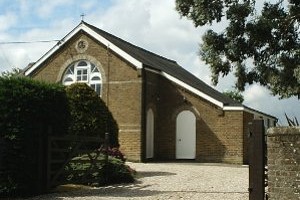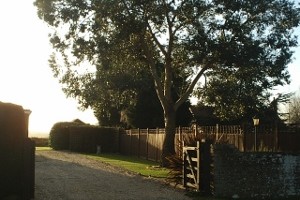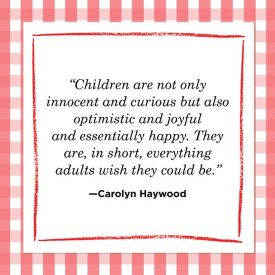Thought for the Month September 2023
Can you remember your early childhood? Do you have memories of a time where you could be carefree and could be cherished for a naivety that brought smiles to adult faces, even though you didn’t really understand why? Can you recall a childhood milestone that caused you to have to stop and view the world through adult eyes, and in that moment began what might be described as an erosion of the age of innocence?
The reason I ask, is that this is the thought I was presented with when my six-year-old granddaughter Naomi asked me what a concentration camp was, after reading a book about Anne Frank and her famous diary. Naomi likes to read a lot and this book was one of a series to educate children about famous influential people who came from simple backgrounds to make a lasting impression on the world around them, and is suitably titled “Little People, Big Dreams”. The book mentioned Hitler and the Nazis as the reason for Anne hiding in the attic, and that when she was found, she was sent to a concentration camp where she died, but it held back in its illustration of the depth of evil that these people and places are known for in the adult context, which of course is to be expected of a children’s book. The problem was that Naomi struggled to understand the significance of what Anne Frank experienced and therefore what made her diary so special, and this invited a series of searching questions to enable her to comprehend who Anne Frank really was, and if you have never experienced the onslaught of a child’s curiosity, then you should know that it is incessant and insatiable to the extreme!
Her main point and one that she would not let go of was ‘why’? Why would any person be so cruel to another, how could they be so horrible as to do that to a small girl and her family, and how could concentration camps be allowed to exist if they were really that bad? The carefully diluted answers that I provided for a six-year-old, did little to alleviate her perplexed understanding of the nature of evil.
This was the moment that it struck me about the innocence of young children, what it is to be childlike when viewing both the world and the people around them, because unlike adults, they are seemingly devoid of prejudice, bigotry, intolerance and prejudgement, well at least until ‘growing up’ changes all that they know, but when exactly is the right time for that to happen? What value do we place on a child’s worldly innocence, and are we too quick to turn them into ‘little adults’ in order to protect them? The sheer incomprehension of the evil that adults can do to each other, was there to be seen in Naomi’s questions and response, and it left me sad at heart that the sharing of well-intentioned knowledge, even diluted well-intentioned knowledge, can come at a cost where children are concerned.
When reflecting on this moment in Naomi’s development, it caused me to think of my own, and how quick young people want to be grownups and to no longer be recognised for being a child, even to the point of completely forgetting how to be childlike, probably because adults tend to chide other adults for behaving in a childish way, simply because it’s not what we are meant to do as part of a mature society. Being childish though, is not necessarily the same as being childlike, for me the first is being immature when the situation requires us to be the grownups that we are, and the latter is possessing the ability to remove the inhibitions of adulthood and return to seeing the world through the child eyes we all once had, an ability we may have lost or forgotten about over time.
This inability to be childlike is what can also cause us adults to devalue the contributions that children can make to our lives, simply because we place so much emphasis on maturity that a child cannot possibly be a contributor to our social or personal ethics, at least until they have learned more about life itself, and somehow earn the right to do so?
Yet a child can smile at others for no other reason than they simply want to, they will say hello to an adult sitting near them on a bus or train for much the same reason, they will sit with other children regardless of skin colour, social class or status and it’s done without prejudice or reservation and simply because it’s a childlike thing to do, their world is not our adult world and maybe we should at times remember this, and to remind ourselves of how it was also our own starting point in life, and that it would not be a bad thing to be a little childlike every now and then.
Jesus had much the same idea about children and being childlike when He said:
“Truly I tell you, unless you change and become like little children, you will never enter the kingdom of heaven. 4 Therefore, whoever takes the lowly position of this child is the greatest in the kingdom of heaven. 5 And whoever welcomes one such child in my name welcomes me. (Mathew Ch18)
The virtues contained within the innocence of children, embodies everything to be found within the Kingdom of Heaven, and until we remember how to be childlike in the manner that we treat others and the world around us, or to humble ourselves and acknowledge that children are far better at accepting others than we are and therefore it is they who are the example to follow, then the Kingdom that Jesus spoke of, will always remain elusive and far beyond our reach.
Danny
Heavenly Father we pray to you,
For childlike eyes to see the world with the innocence of children.
For courage to approach the world with the daring of children.
For love of others given with the eagerness of children.
For desire to heal the world with the purity of children.
For insight to change the world with the wisdom of children.
Amen





